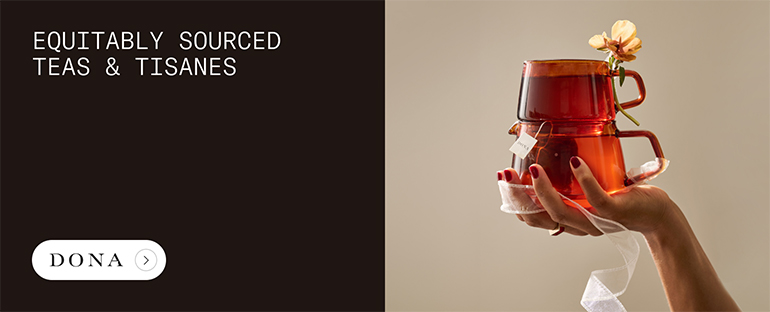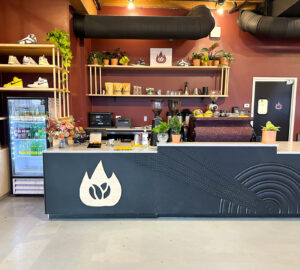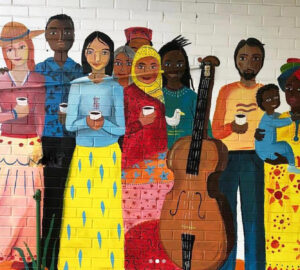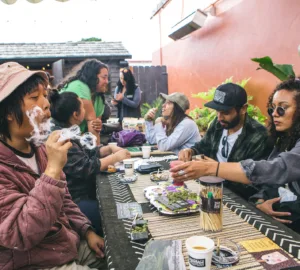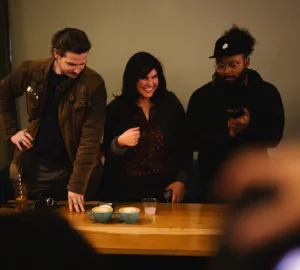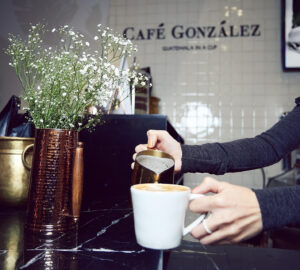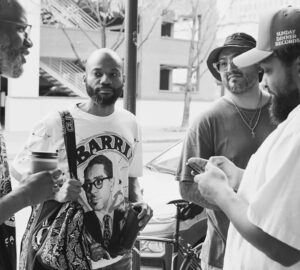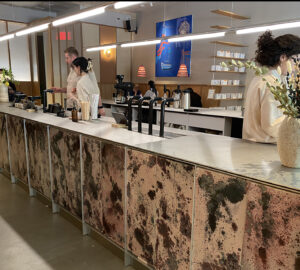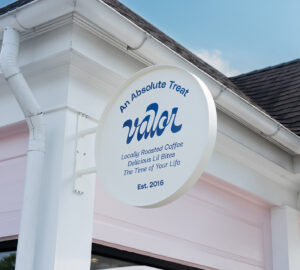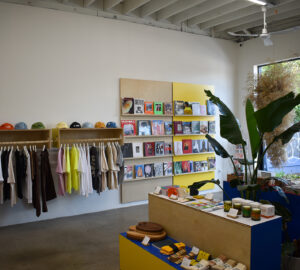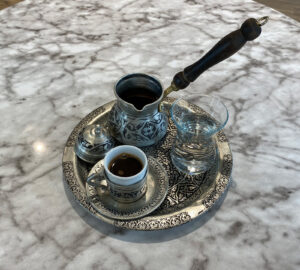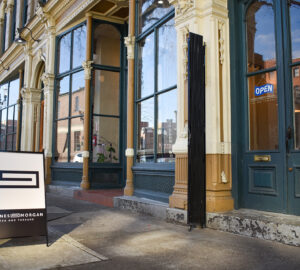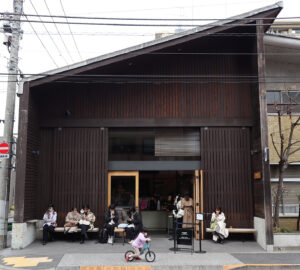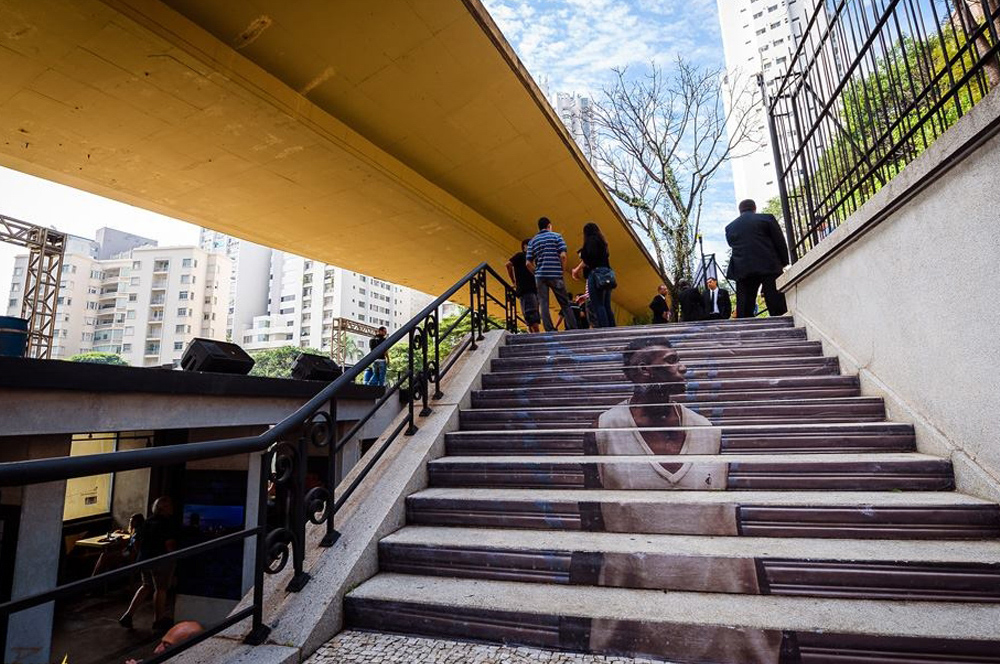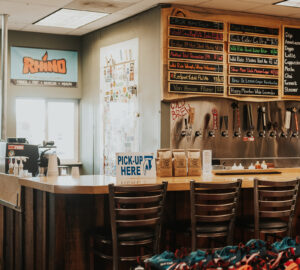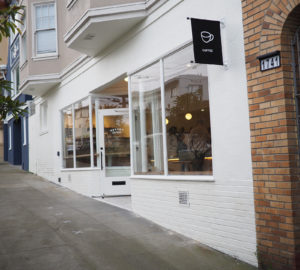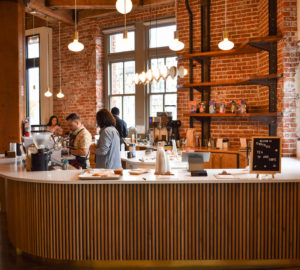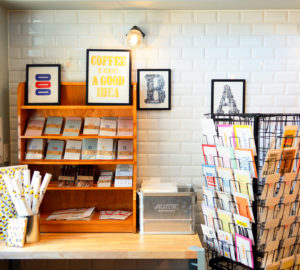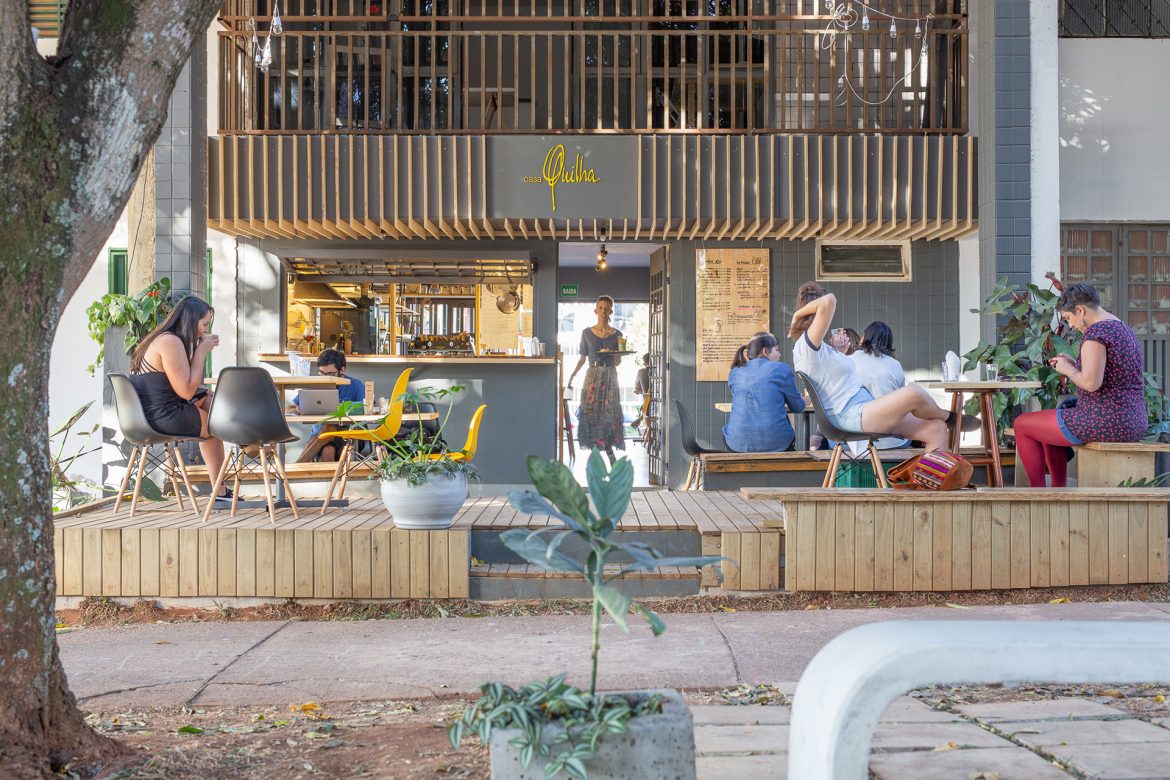
Casa Quilha is a place to come and linger with a coffee—or beer. Whether you want to read a book, meet a friend, or have a gathering, the great atmosphere and the cheery founders welcome you. Partners Luciana Araújo (former partner at Objeto Encontrado), Ricardo Theodoro, Kauê Blass, and Bruno Terra undeniably gave life to the somewhat uncharted part of Brasilia their cafe calls home.
“We wanted it to be a home, for us, our customers, and our projects,” Araújo says. She is in charge of the kitchen and the coffee bar. She has a passion for coffee, but now is also giving room to other passions, such as cooking—many of the cafe’s recipes are hers—and soon, possibly, sewing. Yes, sewing—Casa Quilha is meant to host its partners’ “makers” projects. The below-ground floor houses Theodoro’s woodwork atelier, showcasing beautiful Imbuia pieces, and the second floor will soon be used as Araújo’s atelier. The idea is to focus on sewing, but that might change too, following Casa Quilha’s natural pace. Araújo prefers to keep the mystery.
Casa Quilha is located in an area where there are many mechanic workshops, but no cozy cafes.
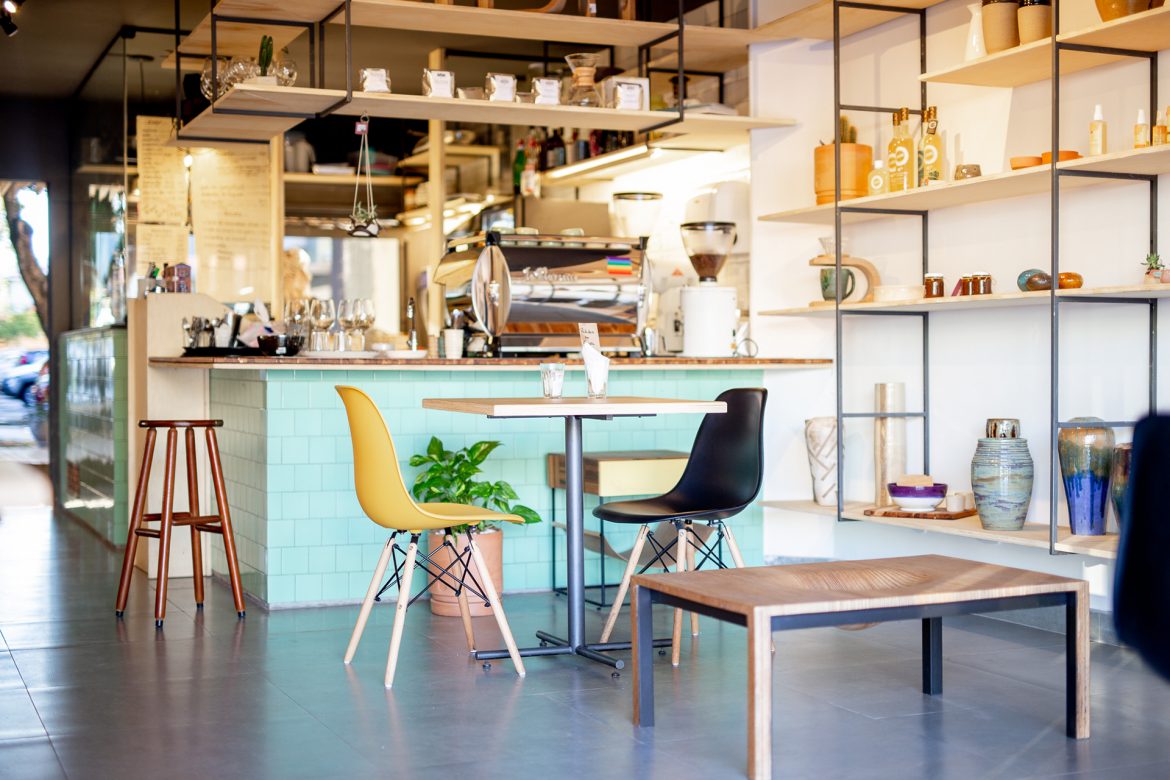
“It was just perfect,” says Araújo. “In the end of the street you suddenly bump into a cafe heaven, you see dogs, bikes, children running outside. It doesn’t resemble other cafes in the capital.” In fact, Casa Quilha doesn’t look like Brasília at all. Being a modernist planned city, all of Brasília’s commercial locations sort of look the same. It’s very difficult to make a place feel unique. But Casa Quilha figured it out naturally, with a public square acting as its backyard. “Everything felt just right, plus the rent prices here were way more affordable,” Araújo says. Casa Quilha’s is a mixed block, where there are houses and local commerces antithetical to the capital’s original planning.
Everything served at the cafe is made in-house. Don’t dare leave without trying their dark and white chocolate cookie, perhaps the best in Brazil, and the lime and almond cake, a recipe by Blass. Casa Quilha serves a salt smoked with Imbuia wood offcuts—courtesy of Theodoro—which is used to smoke salmon that tops bruschetta. Theodoro’s woodwork is everywhere, from the benches to the balcony to the storefront, and many of his pieces are for sale. In fact, demand has been so high he can’t keep up. “It’s been really amazing, people come for coffee and end up taking a piece of art home,” Araújo says.
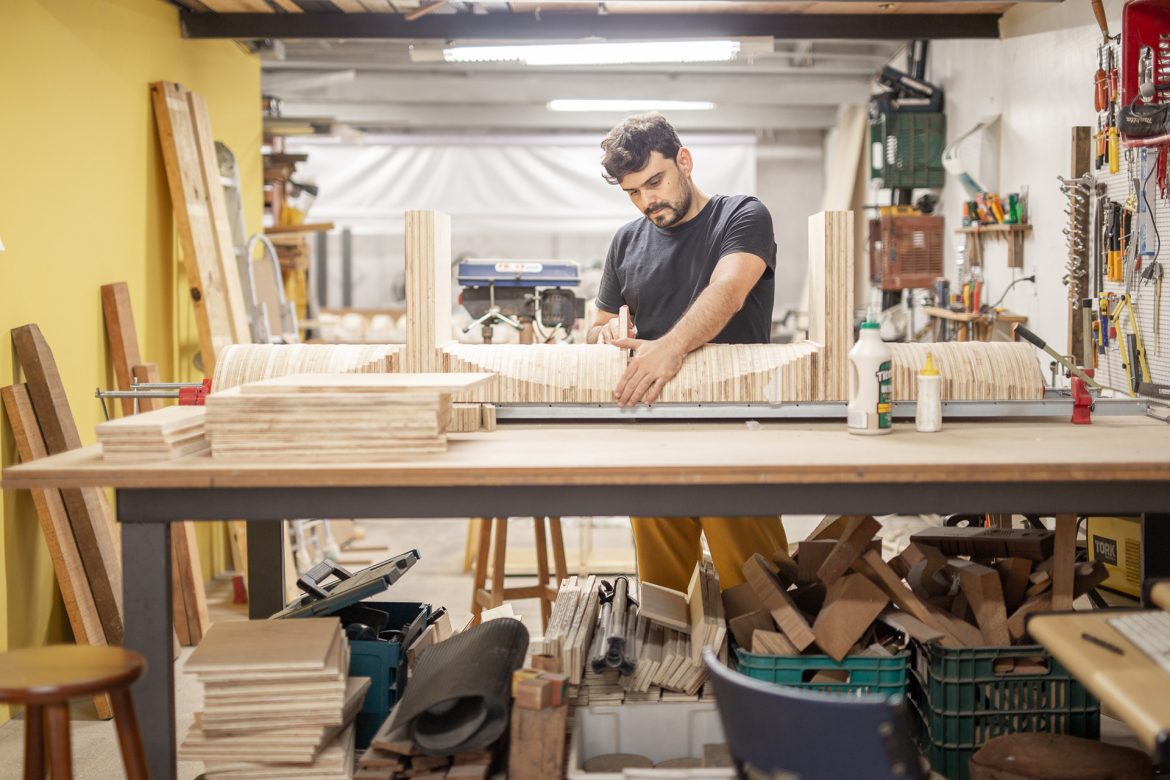
Although the cookies and the cake are already the house’s signatures, Casa Quilha’s menu will change seasonally. They are listening to their customers’ needs and will adapt however feels natural for them and for their community. The menu will grow and change as Casa Quilha’s partners grow and change as well.
“We have a backbone menu that is fixed, which are the hot drinks, cakes, sandwiches, and cookies, and the rest will evolve and change with time,” Araújo says. This is in part because Casa Quilha is a place made of connections—with suppliers and customers. The coffee used is sourced by Aha! Cafés, the first quality-focused micro-roastery in Brasilia. João Pedro Freitas, one of Aha! Cafés’ partners, even authored a drink recipe to be served at Casa Quilha: the Zest Brew. It’s a double shot of espresso, lemon juice, ginger syrup, gin, and lime zest, and has already become part of the fixed drinks menu.
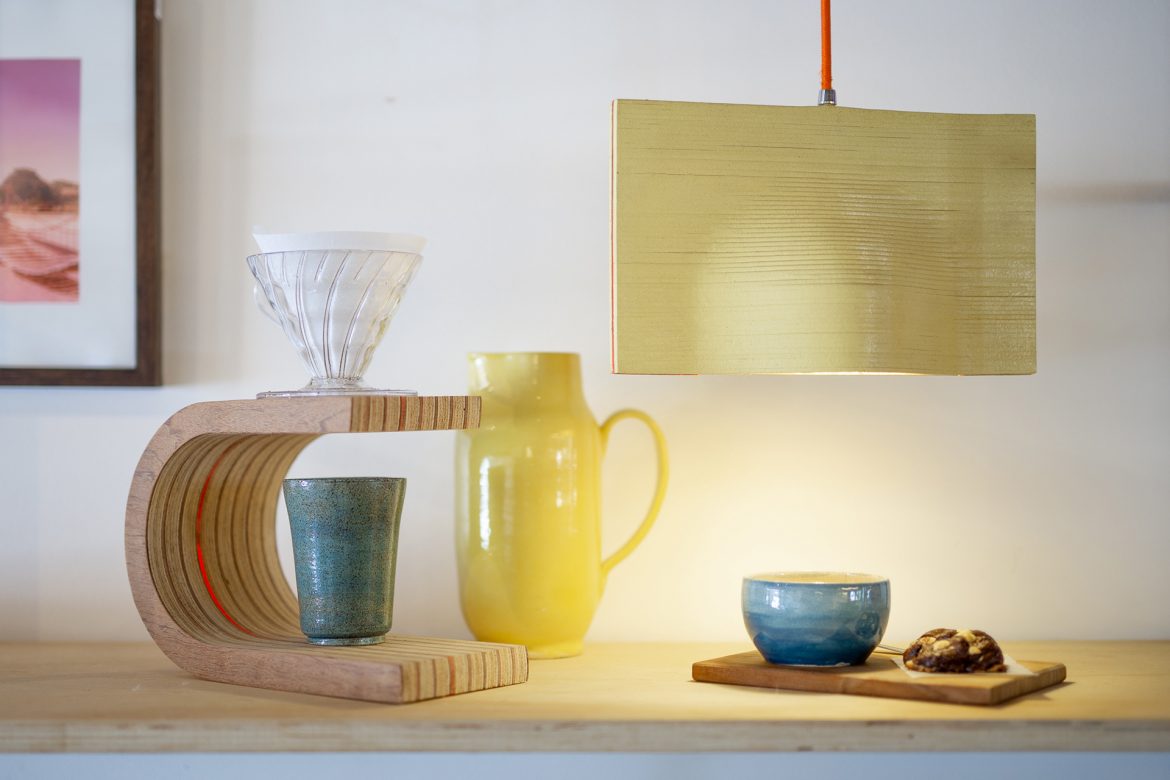
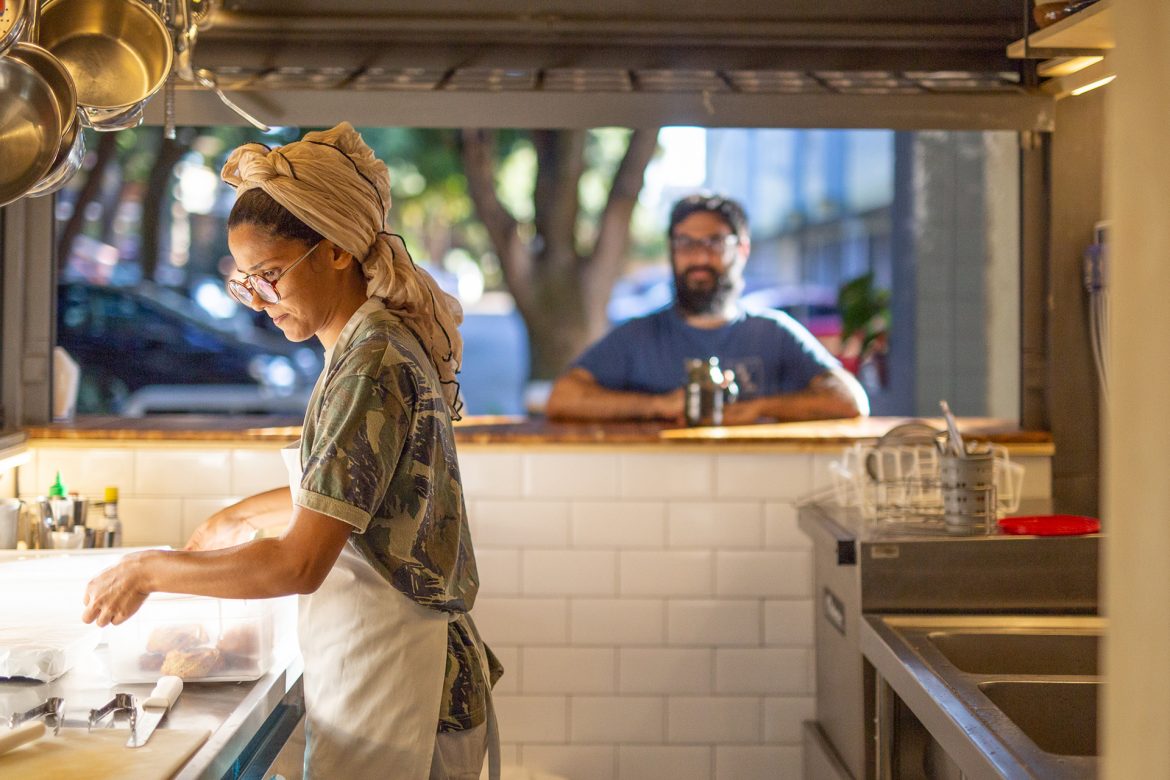
“We do our best to follow our suppliers and respect their timing. Some things that we serve are cyclical, such as our kombucha, ceramics, and coffee. Everything must follow its seasonality, and will change accordingly. That’s the beauty of it,” Araújo says. The goods sold at Casa Quilha rotate too. At any given time, you’ll find them selling anything from preserves to natural cosmetics to ceramics to tiles, all made by local “makers” who are close to Quilha’s founders.
“It’s not that we specifically chose to sell this jewelry here, for example,” Araújo says. “It’s the supplier’s philosophy that matched ours, therefore making it a fit to be sold here.” As for Casa Quilha’s in-house ceramics, they’re made by Araújo’s mom, and each piece is slightly different from the last.
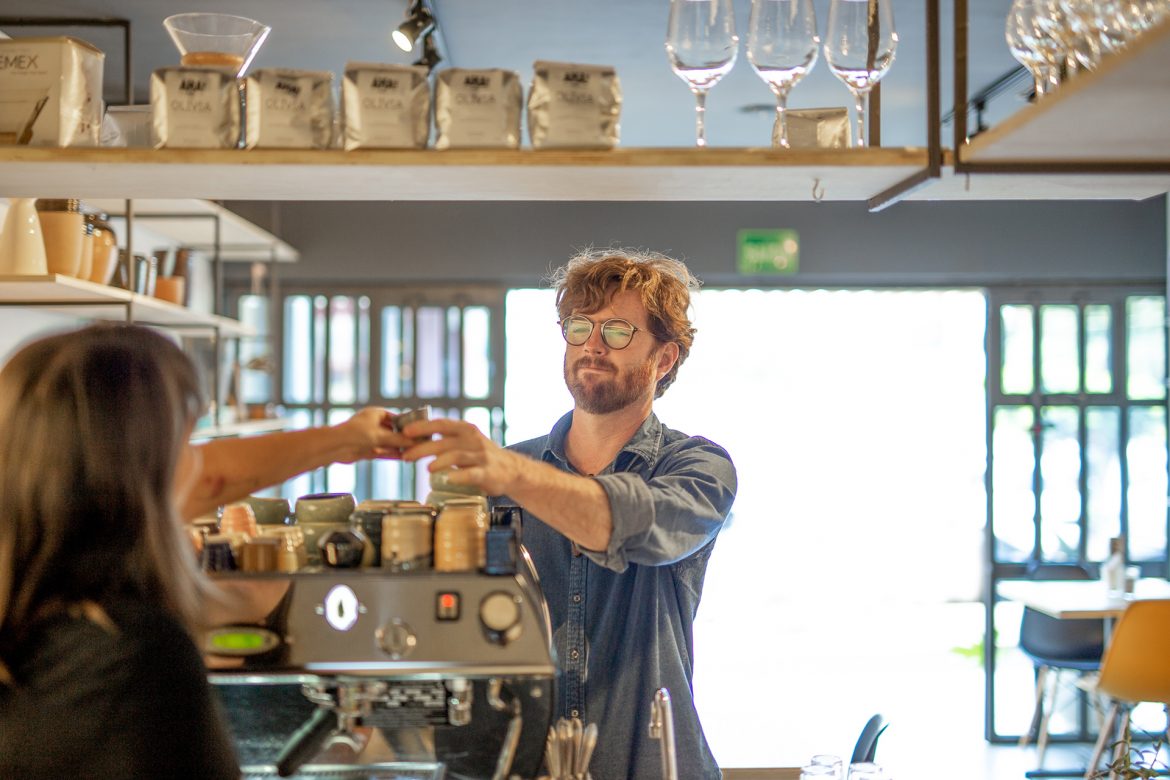
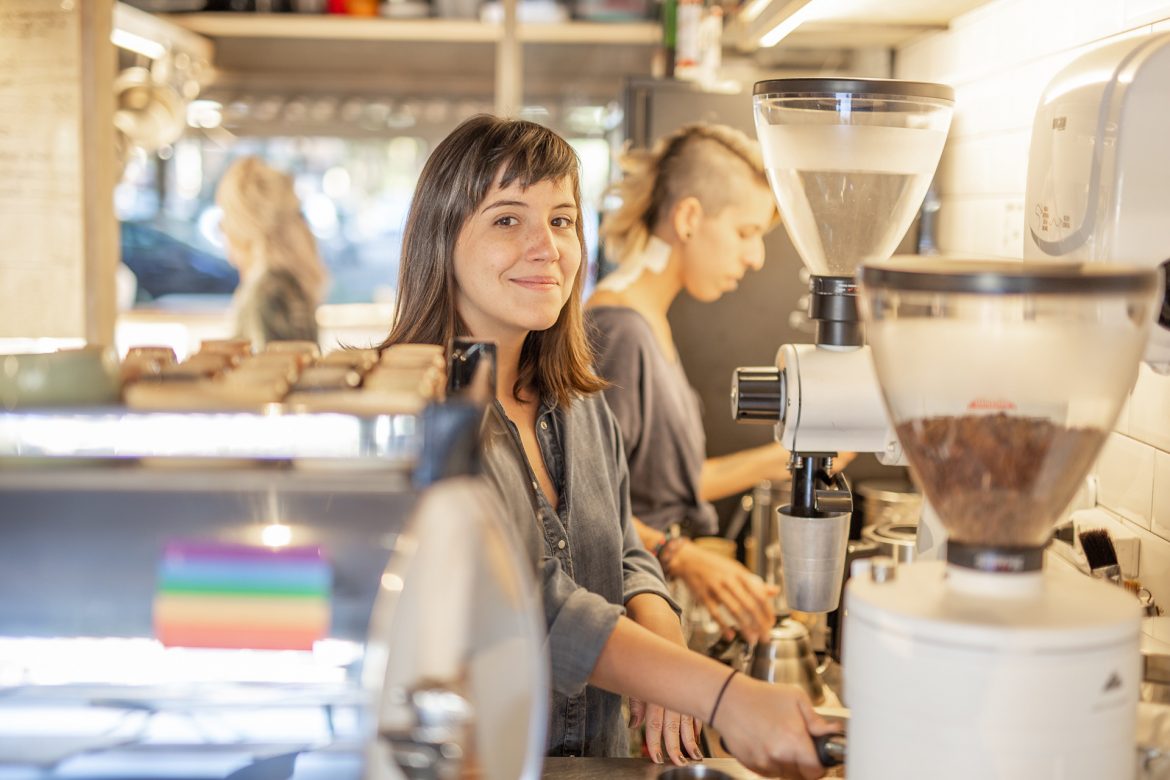
Araújo doesn’t own a car, and only rides her bike in the capital. Casa Quilha encourages customers to do the same: they offer a free espresso—or cookies, depending on the day—for customers who come riding their bikes. Fellow partner Terra is also “pro-bike,” and works with issues of urban mobility. Casa Quilha’s bike rewards are intended to be a small solution for Brazil’s dependence on fossil fuels, as well as its frequent economic and political-based fuel shortages.
“We need to rethink our transportation options, and by offering an espresso we are trying, little by little, to incentivize that,” Araújo says.
Once a week, Casa Quilha promotes a Happy Hour celebration and stays open until 10pm. You come for the coffee and stay for the beer, and the vibe. And the incredible cookies. Don’t forget the cookies.
Juliana Ganan is a Brazilian coffee professional and journalist. Read more Juliana Ganan on Sprudge.
Photos by Ricardo Theodoro.














